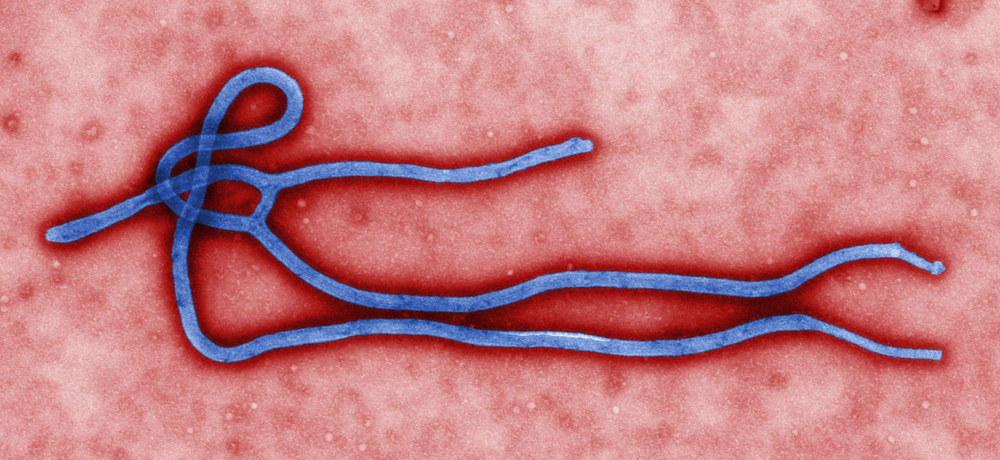A COVID-19 vaccine based on mRNA technology has changed the landscape of the human battle against the SARS-CoV-2 virus. Comirnaty (BNT162b2), developed by pharma giant Pfizer and German Biotech company BioNTech, and Spikevax (mRNA-1273), developed by US company Moderna, accelerated through clinical trials in just a few months, gaining access less than a year after initiating development Regulatory approval.
Currently, countries such as Uganda are battling Ebola. Could an mRNA vaccine be the vaccine against this lethality? Could this vaccine change the landscape of the fight against Ebola?
There are currently 2 vaccines against Ebola virus, one is rVSV-ZEBOV (Ervebo) marketed by Merck in the United States, and the other is Ad26.ZEBOV/MVA-BN-Filo (Zabdeno/Mvabea) marketed by Johnson & Johnson ). However, these vaccines only protect against one subtype, the Ebola-Zaire ebolavirus; there is currently no effective vaccine for the Ebola-Sudan subtype, which The subtype is the culprit behind this outbreak in Uganda.
Heinz Feldmann, head of the virology laboratory at the National Institute of Allergy and Infectious Diseases, who has contributed greatly to the development of an existing Ebola vaccine, said: “Public health in Africa would benefit from more options.”
multiple protection
Alex Bukreyev, a virologist at the University of Texas Medical Branch at Galveston, said it would be ideal to have a vaccine against multiple filoviruses, including Ebola and other families of viruses that cause viral hemorrhage, such as Marburg virus) rather than developing multiple vaccines separately. In poor and backward areas, the vaccine would be convenient to administer without having to redo costly campaigns after each virus outbreak.
At present, the two vaccines against Ebola-Zaire virus rely on another active virus, so the applicable population is limited. Ervebo is only available for people over the age of 18, and the vaccine can have unpleasant side effects. Johnson & Johnson’s Zabdeno/Mvabea can be used for people over 1 year old, but it must be divided into 2 doses for vaccination, which is not suitable in the case of a rapid outbreak.
mRNA vaccines could address some of these challenges, says Norbert Pardi, a vaccinologist at the University of Pennsylvania in Philadelphia who specializes in mRNA technology. Unlike other delivery platforms, mRNA vaccines do not rely on the virus itself, but use mRNA to encode key proteins on the surface of the virus. After the mRNA enters human cells, it begins to translate the protein, which triggers the body’s immune response to the virus.
If a new virus appears, the mRNA base sequence can be quickly adjusted to encode the corresponding protein; multiple mRNA chains can also be included in a vaccine to induce immune protection against different filoviruses. More than 5 billion people have been vaccinated with the mRNA vaccine in preventing COVID-19, and mRNA has demonstrated its safety and efficacy through “real evidence,” Pardi said.
However, Feldmann also pointed out that COVID-19 and Ebola are two completely different diseases. A COVI-19 vaccine can prevent severe cases and deaths rather than infection, in part because variants of the virus that evade immune surveillance are emerging so quickly. And all Ebola vaccines prevent infection and further prevent more severe disease, preventing further spread of the pathogen. In addition, Pardi emphasized that Ebola does not mutate as fast as SARS-CoV-2, so there is no need to worry too much about it.
At present, it is unknown whether a single dose of mRNA vaccine can provide strong immunity against Ebola. Since mRNA vaccines must be stored at low temperatures, this will complicate the vaccination process.
Giants enter the game
The answers to these questions may soon be revealed, but that won’t help the ongoing Ebola outbreak in Uganda. According to Bloomberg, Moderna is nearing completion of the development of an mRNA vaccine against Ebola and other filoviruses, but it is unclear which filovirus(s) the vaccine will target.
Previous research has shown that mRNA technology may well help in the Ebola response. In 2017, Bukreyev and his colleagues found that two mRNA vaccines produced immune responses in guinea pigs. Ten Ebola-infected guinea pigs did not die after vaccination, while five control animals died of severe illness within 10 days.
Even if the work is successful, Bukreyev, who collaborated with Moderna on the study, said it would take about three years of research in non-human primates before human trials can begin.
References:
Max Kozlov. Can mRNA vaccines transform the fight against Ebola? Nature. 2022.









